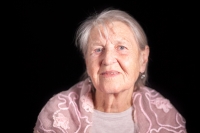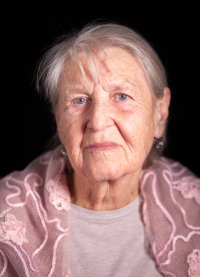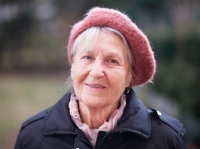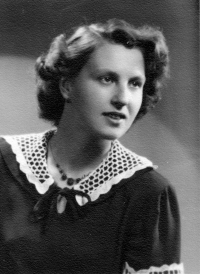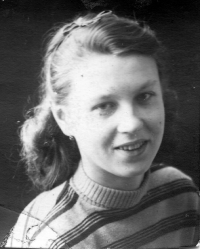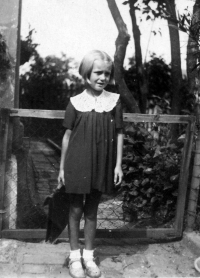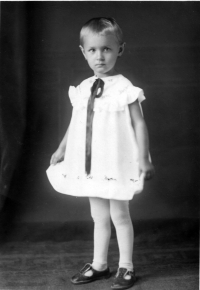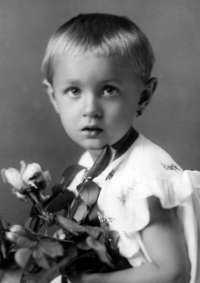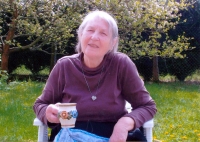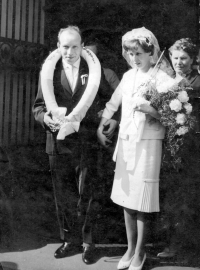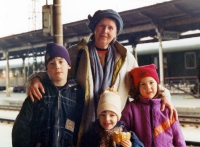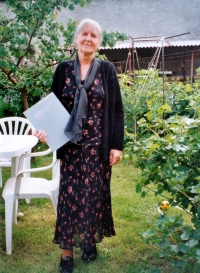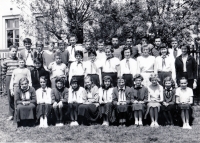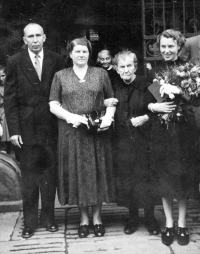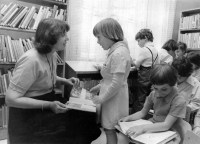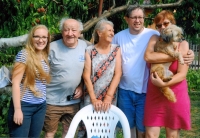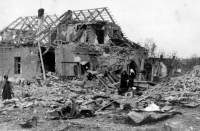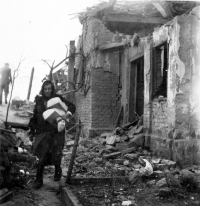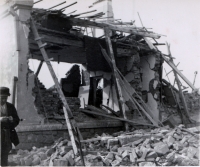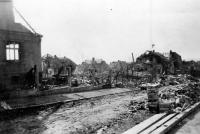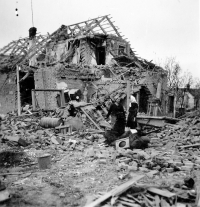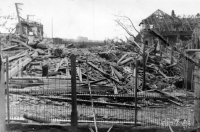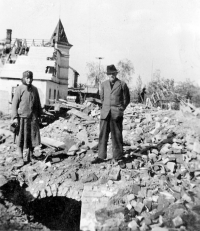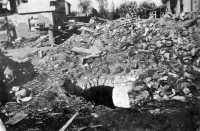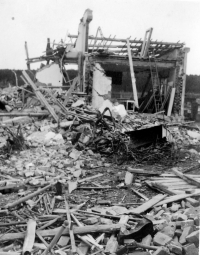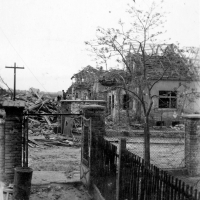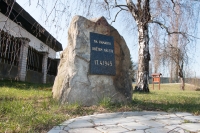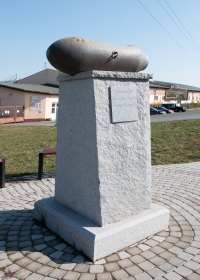Until today, I am scared whenever I hear an airplane

Download image
Milada Nováková was born on the 16th September in 1936 in Plzeň as a daughter of a shop assistant Ladislav Světelský and Julie Barborková-Světelská. A year after, the family moved to Prague for work reasons. Witness’ mother suffered from a grave disease to which she succumbed in December 1943. Her father agreed that Milada be adopted by her uncle and aunt Löschl from Plzeň and she changed her surname to Löschl. On the 17th of April, 1945, during a British air force nighttime air raid aimed at the marshalling yard, a bomb fell near their house. Milada and her family were buried by the rubble in the cellar. They were saved by relatives living nearby. For two months, the Löschl family lived in improvised conditions at their uncle Hajsman. Liberation of PPP left a sweet memory of chocolate and candy which Milada used to get from the American soldiers. She helped her adoptive parents with sorting out the rubble and building a new house. She attended basic school at a school at Chodské Square. In 1947, she started to study at an eight-year high school [age 10 -18] at Mikulášské Square. After the school reform in 1948, she had to transfer to so-called eleven-year school [which were, in fact, three years of secondary education and eight years of basic school in one] in Doubravka. She graduated from high school in 1955 and pursued further education at the two-year Higher School for Education. In 1964, she married Jiří Novák and in the following two years, their daughter Bohumila and son Ondřej were born. In 1964, she started to work as an assistant of Associate Professor Rádl at the department of technical education at the Faculty of Education in Plzeň. She was tormented by the events that followed the August 1968 occupation. She was afraid for her children. In the years 1973 – 1975, she took evening courses at the Evening University of Marxism-Leninism (Večerní univerzita marxismu–leninismu, VUML). In 1976, she started working as a librarian in the children’s section in the municipal library. She was active in the workplace organisation of the Revolutionary Unions Movement (Revoluční odborové hnutí, ROH) In January 1977, she refused to sign the Anticharter. She was travelling in the Soviet Union when the Chernobyl nuclear disaster happened. In 1989, she did not participate in politics in any way. After the Revolution, she was declared an “old structure” and allegedly, her colleagues bullied her. She retired on the 1st of January in 1992. As a retiree, she spent her time caring for her family and taking courses at the School of Lifelong Learning. At the time of recording (2020), she lived in her house with her husband and their daughter.
